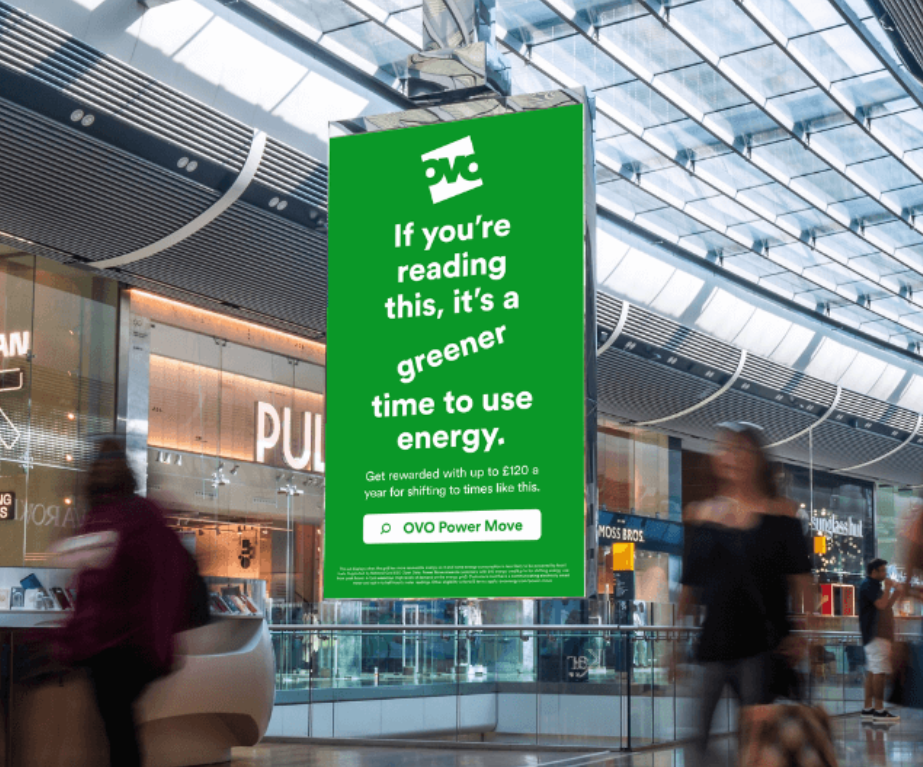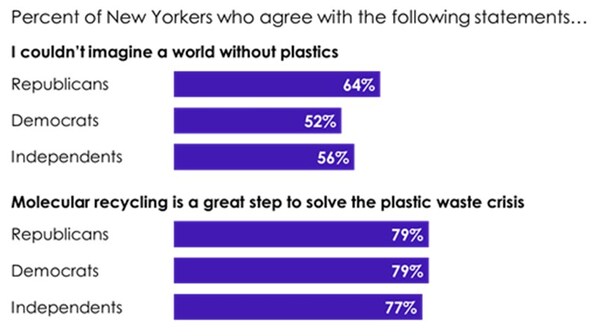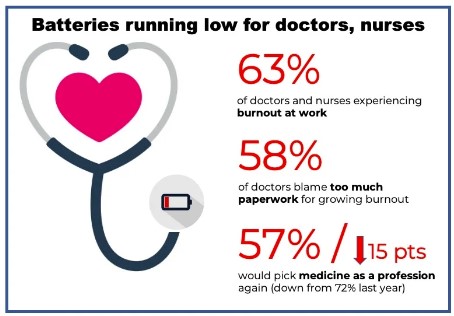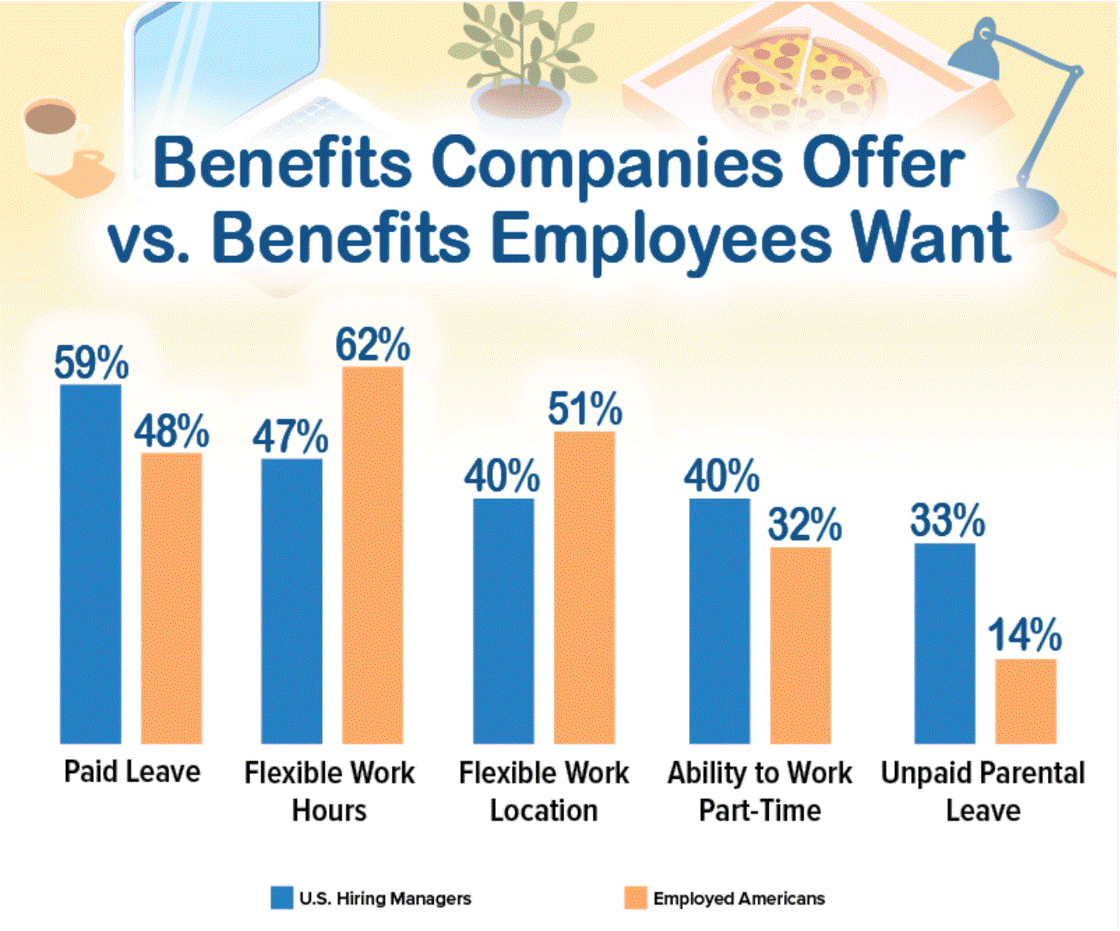DEMOCRATIC PARTY APPROVAL HITS A RECORD LOW AT 36%, NOW 15 POINTS LOWER THAN THE GOP
72% OF VOTERS SUPPORT THE EXISTENCE OF A U.S. GOVERNMENT AGENCY FOCUSED ON EFFICIENCY INITIATIVES
VOTERS WANT UKRAINE TO NEGOTIATE A SETTLEMENT WITH RUSSIA, BUT MOST ARE OPPOSED TO TERRITORIAL CONCESSIONS AND WANT THE U.S. TO GIVE SECURITY GUARANTEES
NEW YORK and CAMBRIDGE, Mass., Feb. 24, 2025 /PRNewswire/ — Stagwell (NASDAQ: STGW) today released the results of the February Harvard CAPS / Harris poll, a monthly collaboration between the Center for American Political Studies at Harvard (CAPS) and the Harris Poll and HarrisX.
In his first month in office, President Donald Trump’s approval rating is at 52%, with voters most satisfied with his job on immigration, reducing the cost of the government, and returning America to its values. The majority of voters support Trump’s policies on the border, focus on government expenditures, gender, DEI, and offshore drilling but have concerns on his foreign policies involving tariffs, the Israel-Hamas war, and the war in Ukraine. Download key results here.
“People are taking a generally positive wait-and-see attitude for Trump but have really reassessed their attitudes toward Biden, Harris, and the Democrats, taking a much harsher, more negative attitude,” said Mark Penn, Co-Director of the Harvard CAPS / Harris poll and Stagwell Chairman and CEO. “Trump has a real opportunity here – we’re seeing a healthy, trudging approval edging toward real approval based on how the next couple of months turn out.”
VOTERS FEELING MORE OPTIMISTIC ABOUT DIRECTION OF COUNTRY AND ECONOMY
- 42% of voters say the country is on the right track, up 14 points from January 2025 (Democrats: 21% (-9); Republicans: 71% (+37); Independents: 31% (+12)).
- 31% of voters say their personal financial situation is improving (+5), particularly among Republican, male, Black, and urban voters.
- Inflation and immigration remain the top two issues for voters, with a 6-point increase in concern over corruption.
TRUMP AND THE REPUBLICANS START SECOND TERM WITH NET FAVORABLE RATINGS
- Donald Trump’s favorability stands at 50%, with a net favorable of +7 points.
- More voters have a favorable rather than unfavorable view of key cabinet members such Robert F. Kennedy Jr. (+9), J.D. Vance (+4), and Tulsi Gabbard (+3).
- Voters are split on Elon Musk and Mike Johnson.
- The Democratic Party received its lowest approval rating since at least March 2018, with 33% of Democrats, 86% Republicans, and 70% Independents disapproving. 49% of voters approve of the Republican Party (+1). 36% of voters approve of Congress (+5).
TRUMP POLICIES RECEIVE MAJORITY SUPPORT BUT FACE CONCERN OVER INFLATION AND DIVISIVENESS
- All of Trump’s key policies received majority support except for renaming the Gulf of Mexico to the Gulf of America, with deportation of illegal immigrants who have committed crimes (81%), eliminating fraud and waste in government expenditures (76%), and closing the border (76%) as the top three most supported policies.
- 55% of voters support birthright citizenship for the children of illegal immigrants, with 63% believing it is a requirement in the U.S. constitution, breaking with Trump on the issue.
- 70% of voters believe the government should make hiring decisions based on merit and objective evaluation rather than to achieve diversity. 51% of voters say Diversity, Equity, and Inclusion departments are needed in government.
- 40% of voters say Trump’s policies will make them financially better off, while 36% believe Trump’s policies will make them worse off. 46% of voters say Trump’s policies will increase inflation.
- 54% of voters are worried that Trump’s actions will divide the country (Democrats: 82%; Republicans: 20%; Independents: 61%).
VOTERS OVERWHELMINGLY SUPPORT CUTTING DOWN GOVERNMENT EXPENDITURES BUT ARE SENSITIVE AROUND DATA PRIVACY
- 67% of voters say the current level of U.S. federal government debt is unsustainable.
- 83% of voters favor reducing government expenditures over increasing taxes, and 77% say a full examination of all government expenditures is necessary.
- 70% of voters say government expenditures are filled with waste, fraud, and inefficiency (Democrats: 58%; Republicans: 78%; Independents: 75%), and 69% support the goal of cutting $1 trillion of government expenditures.
- 60% of voters think DOGE is helping make major cuts in government expenditures.
- 58% of voters say DOGE employees should not have access to sensitive information on Americans who benefit from government expenditure programs; including names, social security numbers, addresses, and incomes (Democrats: 75%; Republicans: 39%; Independents: 63%).
TARIFFS SEE MAJORITY SUPPORT BUT VOTERS SPLIT OVER CONCERN ON WHETHER THEY WILL HARM OR HELP
- 57% of voters say tariffs are an effective foreign and economic policy tool. The plurality of voters (44%) believe tariffs on imported goods will increase U.S. government revenue.
- 62% of voters believe tariffs will raise prices of everyday goods (Democrats: 75%; Republicans: 50%; Independents: 62%).
- 54% of voters say tariffs will help the Trump administration get concessions from other countries, but 49% of voters say the recent tariffs on Mexican, Canadian, and Chinese imports will harm rather than help, and 46% of voters say his tariffs on steel and aluminum imports will do harm.
- 61% of voters support reciprocal tariffs, with voters split on whether they will harm or help. 53% of voters believe reciprocal tariffs will cause other countries to lower their tariffs on U.S. goods.
THE MAJORITY OF VOTERS SUPPORT ENDING THE WAR IN UKRAINE, BUT OPPOSE LEAVING OUT UKRAINE AND EUROPEAN LEADERS FROM NEGOTIATIONS
- 72% of voters say they want Ukraine to negotiate a settlement with Russia instead of winning the war. 60% of voters favor Trump announcing direct U.S.-Russia negotiations (Democrats: 40%; Republicans: 85%; Independents: 53%).
- 59% of voters oppose the Trump administration leaving Ukraine’s leaders out of negotiations with Russia. 55% of voters oppose the exclusion of European leaders.
- 57% of voters oppose the Trump administration forcing Ukraine to make territorial concessions to end the war, and 66% of voters say Ukraine should receive security guarantees from the U.S. if it were to make concessions.
- 61% of voters say security guarantees should be contingent on Ukraine sharing revenue from rare earth elements to pay back U.S. military support.
- 63% of voters believe Russia will continue to advance onto other countries if it successfully claims Ukrainian territory.
VOTERS SPLIT ON WHETHER TRUMP WAS SERIOUS ABOUT THE U.S. TAKING OVER GAZA, BELIEVE IT IS A BAD IDEA
- 54% of voters support Trump’s handling of the Israel-Hamas conflict thus far.
- 67% of voters have heard of Trump’s proposal that the U.S. should take over Gaza to redevelop it. 47% of voters believe Trump was being serious, and 53% believe he was posturing to start negotiations.
- 70% of voters believe the U.S. taking over Gaza is a bad idea. 56% of voters oppose removing Palestinians from Gaza to rebuild the territory.
- Support for Israel over Hamas in the conflict remains high, with 77% of voters supporting Israel.
- 76% of voters say Iran’s nuclear weapons facilities should be destroyed. 57% of voters say the U.S. should support Israel in airstrikes on such facilities (Democrats: 45%; Republicans: 74%; Independents: 51%).
The February Harvard CAPS / Harris poll survey was conducted online within the United States on February 19-20, 2025, among 2,443 registered voters by The Harris Poll and HarrisX. Follow the Harvard CAPS / Harris poll podcast at https://www.markpennpolls.com/ or on iHeart Radio, Apple Podcasts, Spotify, and other podcast platforms.
About The Harris Poll & HarrisX
The Harris Poll is a global consulting and market research firm that strives to reveal the authentic values of modern society to inspire leaders to create a better tomorrow. It works with clients in three primary areas: building twenty-first-century corporate reputation, crafting brand strategy and performance tracking, and earning organic media through public relations research. One of the longest-running surveys in the U.S., The Harris Poll has tracked public opinion, motivations, and social sentiment since 1963, and is now part of Stagwell, the challenger holding company built to transform marketing.
HarrisX is a technology-driven market research and data analytics company that conducts multi-method research in the U.S. and over 40 countries around the world on behalf of Fortune 100 companies, public policy institutions, global leaders, NGOs and philanthropic organizations. HarrisX was the most accurate pollster of the 2020 U.S. presidential election.
About the Harvard Center for American Political Studies
The Center for American Political Studies (CAPS) is committed to and fosters the interdisciplinary study of U.S. politics. Governed by a group of political scientists, sociologists, historians, and economists within the Faculty of Arts and Sciences at Harvard University, CAPS drives discussion, research, public outreach, and pedagogy about all aspects of U.S. politics. CAPS encourages cutting-edge research using a variety of methodologies, including historical analysis, social surveys, and formal mathematical modeling, and it often cooperates with other Harvard centers to support research training and encourage cross-national research about the United States in comparative and global contexts. More information at https://caps.gov.harvard.edu/.
Contact:
Carrie Hsu
pr@stagwellglobal.com
Related
Articles
In the News, Press Releases
Jul 09, 2025
STAGWELL LAUNCHES STAGWELL MEDIA PLATFORM (SMP), A CENTRALIZED TEAM OF GLOBAL MEDIA, TECHNOLOGY AND DATA INVESTMENT EXPERTS

In the News, Investments & Financials, Press Releases
Jul 08, 2025
Stagwell (STGW) Schedules Webcast to Discuss Financial Results for the Three Months Ended June 30, 2025

In the News, Investments & Financials, Press Releases, Talent & Awards
Jul 08, 2025
Stagwell (STGW) Advances Executive Team with Four Key Appointments

Newsletter
Sign Up
New Survey by Stagwell (STGW)’s The Harris Poll Highlights Critical Gaps in Postpartum Maternal Health Education and Support in the U.S.
NEW YORK, July 31, 2024 /PRNewswire/ — In conjunction with World Breastfeeding Week which starts tomorrow, The Harris Poll, a Stagwell Agency, is releasing additional data from its second annual State of Maternal Health Report, revealing significant shortcomings in the health information and support women in the U.S. receive throughout their pregnancy and postpartum journey. Key findings from the survey, conducted online in April of 2024 among more than 1,000 U.S. women aged 18+, indicate a worrying trend: pregnant women in the U.S. are being underserved when it comes to postpartum education and support.
Two in 5 women who have been pregnant (40%) report receiving insufficient (22%) or no information/ resources at all (18%) from their healthcare providers (HCPs) on the topic of breastfeeding, according to the survey. The gap widens when it comes to mental health, with more than half of women who have been pregnant (53%) likely under-supported as they did not receive any (40%) or enough (13%) information/resources on postpartum depression.
“These statistics are not just numbers; they represent the real struggles of mothers nationwide, including myself, who feel neglected by the systems meant to support them,” expressed Christina Lojek, Research Manager at The Harris Poll. “Fueled by my own experiences, I chose to lead this study, and it solidifies how imperative it is that we improve postpartum support and education for mothers, who are clearly asking for and deserving of much better care.”
Lack of education on postpartum depression is even more distressing given how much more widespread this health issue is becoming. About 1 in 8 women who are currently pregnant or have been pregnant (13%) say they were diagnosed with postpartum depression by a medical professional – this jumps to 29% among women ages 18-34, versus 10% among women ages 35+.
The need for better postpartum care, in general, is also evident. Roughly 1 in 4 women who have been pregnant (24%) rate their postpartum care as less than adequate. Postpartum care unfortunately appears to be on the decline, with over a third of women ages 18-34 who have been pregnant (36%) citing subpar care, compared to just 22% of women ages 35+. Additionally, a substantial 74% of all women agree that there isn’t enough focus on postpartum healthcare for mothers, and nearly two thirds (64%) feel that mothers are often forgotten once the baby arrives.
Another significant way that women are being neglected postpartum is the lack of federal maternity leave in the U.S. The survey highlights a strong consensus on the importance of maternity leave, with nearly all women affirming its pivotal role in improving health outcomes for both mothers and their babies (90%, each). Despite this, dissatisfaction with U.S. maternity leave policies is evident, as a significant majority of women (73%) consider the leave provided by most U.S. employers insufficient, indicating a need for reform. Nearly 3 in 5 women (58%) believe that the standard minimum length of paid maternity leave should be extended to at least 12 weeks, with about a quarter advocating for 20 weeks or more, and 11% suggesting a minimum of 26 weeks.
The weeks and months after giving birth are crucial to both mother and baby, not only to give them time to bond, but to allow mothers to recover and focus on caring for and nourishing their babies. When specifically looking at breastfeeding, the benefits are widespread, from aiding with bonding, to protecting both mother and baby from various health risks. Furthermore, according to a study published by HHS, there is a direct correlation between length of maternity leave and breastfeeding initiation and prolonged duration. Yet, current U.S. maternity leave policies, or lack thereof, do not support this.
Shockingly, almost two thirds of women (64%) are unaware that the U.S. lacks federal paid maternity leave. This finding underscores a significant information deficit that could leave many expecting mothers in a position where they need to choose between prioritizing the wellbeing of themselves and their baby or their job.
At the start of World Breastfeeding week, these findings are even more concerning and paint a dire picture of the critical need for comprehensive educational programs, substantial policy changes, and a stronger support system for mothers during and after pregnancy. This is a wake-up call for all stakeholders involved in maternal healthcare to strengthen support structures and ensure mothers receive the care and information they need to safeguard the health and well-being of both mothers and their children.
If you or someone you know are currently pregnant or plan to be pregnant in the future, please consider checking out the below resources/information to better support that journey.
- To better support your breastfeeding journey:
- Reach out to your insurance company before giving birth to understand lactation support benefits, in-network lactation consultants, and to find out how to get a free breast pump
- Work with a lactation specialist after delivering (the hospital has them on staff), and/or consider seeing one in the weeks after giving birth
- Check with your HCP/delivering hospital about local breastfeeding cafes, which provide peer support and are often led by a lactation specialist
- To ensure you are getting the maximum allowed leave time if you are employed, ask your employer about their maternity leave policy and how it works in conjunction with state disability and/or state paid family leave
- To better support your mental health during and after pregnancy, ask your healthcare provider(s) about signs of depression/PPD and anxiety/PPA to look out for and resources to help manage these issues
Survey Method:
The 2024 State of Maternal Health survey was conducted online in the U.S. by The Harris Poll April 2-4, 2024 among 2,061 U.S. adults ages 18+, among whom 1,116 are women, and 701 are women who are currently pregnant or have ever been pregnant. The sampling precision of Harris online polls is measured by using a Bayesian credible interval. For this study, the sample data is accurate to within +/- 2.5 percentage points using a 95% confidence level. This credible interval will be wider among subsets of the surveyed population of interest. For complete survey methodology, including weighting variables and subgroup sample sizes, please contact christina.lojek@harrispoll.com.
About The Harris Poll
The Harris Poll is a global consulting and market research firm that strives to reveal the authentic values of modern society to inspire leaders to create a better tomorrow. It works with clients in three primary areas: building twenty-first-century corporate reputation, crafting brand strategy and performance tracking, and earning organic media through public relations research. One of the longest-running surveys in the U.S., The Harris Poll has tracked public opinion, motivations and social sentiment since 1963, and is now part of Stagwell, the challenger holding company built to transform marketing. To learn more, please visit www.theharrispoll.com
Contact:
Christina Lojek
christina.lojek@harrispoll.com
Related
Articles
In the News, Investments & Financials, Press Releases, Talent & Awards
Jul 08, 2025
Stagwell (STGW) Advances Executive Team with Four Key Appointments

In the News, Press Releases, Thought Leadership
Jun 10, 2025
Stagwell (STGW) Chairman and CEO Mark Penn to Discuss the Irreplaceable Power of Human Creativity on the Main Stage of Cannes Lions

Events, In the News, Press Releases, Talent & Awards
Jun 05, 2025
Code and Theory Named ANA B2B Agency of the Year After Transforming the World’s Leading Brands

Newsletter
Sign Up
79% OF VOTERS APPROVE OF BIDEN’S DECISION TO STEP DOWN
KAMALA HARRIS ENJOYS A 9 POINT JUMP IN FAVORABILITY FOLLOWING HER ANOINTMENT AS THE FRONTRUNNER DEMOCRATIC CANDIDATE
TRUMP LEADS HARRIS BY 3 POINTS, DOWN FROM HIS JUNE 7 POINT LEAD ON BIDEN
NEW YORK and CAMBRIDGE, Mass., July 30, 2024 /PRNewswire/ — Stagwell (NASDAQ: STGW) today released the results of the July Harvard CAPS / Harris poll, a monthly collaboration between the Center for American Political Studies at Harvard (CAPS) and the Harris Poll and HarrisX. The new poll found that after an unprecedented month in American politics that witnessed a failed assassination attempt on former President Trump and President Biden stepping aside in favor of Vice President Harris running as the Democratic candidate in November, the horserace has reset to a 3-point lead for Trump, 48% to 45%, with 7% still undecided.
Both Trump and Harris have benefited from a jump in favorability due to these events, now tied at 48% and 47% favorability, respectively. Nevertheless, with 24% of voters saying they could change their mind, the matchup is highly competitive.
“The Democratic Party has recovered from what was a Titanic — the iceberg of age was sinking them rapidly,” said Mark Penn, Co-Director of the Harvard CAPS / Harris poll and Stagwell Chairman and CEO. “Kamala Harris has come with lifeboats to put the race back where it was.”
The July poll covers public opinion on the candidates and the GOP policy platform coming out of the Republican National Convention. Download key results here.
HARRIS RE-ENERGIZES DEMOCRATS
- 79% of voters approve of Biden’s decision to step down, and 55% approve of his endorsement of Harris including 92% of Democrats.
- Compared to June, more Democrats say they would vote for the Democratic candidate (+5 points), and less Independents are unsure of who they would vote for (-10 points). Most of those undecided Independent voters say they would vote for Harris (Harris: +7 points; Trump: +3 points).
- Harris performs better among minority voters with the support of a plurality of women (48%), Black (67%), and Hispanic (47%) voters.
- 24% of voters say they have not made up their mind on who they will vote for, including 20% of Democrats, 17% of Republicans, and 41% of Independents.
BIDEN’S DECISION TO STEP ASIDE HAS LITTLE IMPACT ON APPROVAL RATINGS
- Biden’s approval rating remains low at 42%, up 2 points from June.
- 54% of voters say they approve of the job Trump did as president, up 2 points from June. Among minority voters, 53% of Hispanic voters and 40% of Black voters approve.
- Across political parties, inflation remains the most important issue to voters personally. 48% of voters say their personal financial situation is worsening, especially among women (53%), Hispanic (51%), and rural (57%) voters.
- 65% of Black voters approve of the Democratic Party, while 59% of white voters and 52% of Hispanic voters disapprove.
HARRIS WINS ON PERSONALITY BUT IS SEEN AS CONTINUITY OF BIDEN, DIVERGING FROM ELECTORATE ON KEY POLICY PREFERENCES
- Between the two candidates, more voters believe Harris has the right temperament, is more trustworthy, and is more honest, while more voters perceive Trump as a fighter and someone who will get things done.
- 67% of voters say Harris will continue Biden administration policies on issues like taxes, inflation, immigration, and energy. Roughly half believe she is politically aligned with Biden.
- A majority of voters oppose open borders (67%), ending private healthcare options (68%), and mandating the replacement of gas cars with electric vehicles (72%) — but a majority believe Harris supports those policies (borders: 69%; healthcare: 53%; electric vehicles: 72%).
- Josh Shapiro and Mark Kelly are the VP nominees who would be most helpful to Harris.
MAJORITY OF VOTERS SUPPORT GOP PLATFORM COMING OUT OF THE CONVENTION
- A majority of voters support GOP platform initiatives like protecting social security and Medicare, ending inflation, and stopping violence and crime, including over 89% of Republicans and over 79% of Independents across every policy issue.
- 33% of voters think the Republican Party left out abortion from its policy platform because the party believes it is a state decision. A plurality of Democratic (31%), 18-24 year-old (23%), and Black (24%) voters believe the party has a secret plan to ban abortion.
- 45% of voters and 76% of Republicans approve of J.D. Vance as Trump’s running mate, but roughly half of voters say the selection has no impact on their vote.
VOTERS SUPPORT ISRAEL IN THE FACE OF HEZBOLLAH ATTACKS, WANT GAZA TO BE ADMINISTERED BY ARAB NATIONS
- 66% of voters believe Israel should retaliate if Hezbollah keeps firing rockets into the north (age 18-24: 46%; ages 65+: 82%).
- 82% of voters say Hamas should be removed from power in Gaza, consistent with June sentiment.
- A plurality of voters (38%) think Gaza should be administered by a new authority set up through negotiations with Arab nations.
The July Harvard CAPS / Harris poll survey was conducted within the United States on July 26-28, 2024, among 2,196 registered voters by The Harris Poll and HarrisX. Follow the Harvard CAPS Harris Poll podcast at https://www.markpennpolls.com/ or on iHeart Radio, Apple Podcasts, Spotify, and other podcast platforms.
About The Harris Poll & HarrisX
The Harris Poll is a global consulting and market research firm that strives to reveal the authentic values of modern society to inspire leaders to create a better tomorrow. It works with clients in three primary areas: building twenty-first-century corporate reputation, crafting brand strategy and performance tracking, and earning organic media through public relations research. One of the longest-running surveys in the U.S., The Harris Poll has tracked public opinion, motivations, and social sentiment since 1963, and is now part of Stagwell, the challenger holding company built to transform marketing.
HarrisX is a technology-driven market research and data analytics company that conducts multi-method research in the U.S. and over 40 countries around the world on behalf of Fortune 100 companies, public policy institutions, global leaders, NGOs and philanthropic organizations. HarrisX was the most accurate pollster of the 2020 U.S. presidential election.
About the Harvard Center for American Political Studies
The Center for American Political Studies (CAPS) is committed to and fosters the interdisciplinary study of U.S. politics. Governed by a group of political scientists, sociologists, historians, and economists within the Faculty of Arts and Sciences at Harvard University, CAPS drives discussion, research, public outreach, and pedagogy about all aspects of U.S. politics. CAPS encourages cutting-edge research using a variety of methodologies, including historical analysis, social surveys, and formal mathematical modeling, and it often cooperates with other Harvard centers to support research training and encourage cross-national research about the United States in comparative and global contexts. More information at https://caps.gov.harvard.edu/.
Contact:
Kara Gelber
pr@stagwellglobal.com
Related
Articles
In the News, Investments & Financials, Press Releases, Talent & Awards
Jul 08, 2025
Stagwell (STGW) Advances Executive Team with Four Key Appointments

In the News, Press Releases, Thought Leadership
Jun 10, 2025
Stagwell (STGW) Chairman and CEO Mark Penn to Discuss the Irreplaceable Power of Human Creativity on the Main Stage of Cannes Lions

Events, In the News, Press Releases, Talent & Awards
Jun 05, 2025
Code and Theory Named ANA B2B Agency of the Year After Transforming the World’s Leading Brands

Newsletter
Sign Up
ABOUT THE AGENCIES BEHIND THE WORK
Goodstuff is the UK’s leading media planning and buying agency. Our combination of entrepreneurial ownership, a comms planning heritage and an unrestrained, transparent trading approach gives us the ability to deliver inventive media solutions that no one else can.
Assembly Global is a modern agency delivering a market-leading global omnichannel media offering, powered by data, technology and business consulting solutions to find the change that fuels growth for the best brands in the world.
Frontiers in Focus
Want to explore more of the frontiers of marketing? View more of our work on the cutting edge of AI and immersive brand experiences here.
SIGN UP FOR OUR INSIGHTS BLASTS
With the constant rise in the cost of living, people are pinching pennies and struggling to find ways to sustainably meet their personal demands. But what if you didn’t have to decide between saving money and helping the environment?
Goodstuff and Assembly Global partnered with OVO Energy, the UK’s second largest energy supplier, to encourage users to shift their energy use out of peak energy times. Powered by a proprietary green bidding technology built by Assembly and Goodstuff, the “Greener Grid,” serves ads in greener moments, letting passerby’s know when to cut carbon emissions and contribute to a better energy system.

Our Approach to Transformation
To better understand when to “plug in,” Greener Grid, a dynamic out-of-home campaign, displays the perfect opportunities to engage in sustainable moments and reduce carbon impact. Powered by generative AI and real-time API data from the National Grid, the campaign rewards customers for shifting energy usage out of peak energy times (4-7pm, weekdays), to times when the grid is greener, cleaner and powered by renewable energy. Sustainable messaging — “If you’re seeing this, it’s a greener time to use energy” — only appears when the grid is running on renewable energy, letting users know now’s the time to make a greener decision.
Through Assembly and Goodstuff’s AI-powered STAGE technology, we created a custom algorithm to fuel programmatic buying and automatically bid when the grid is greener, updated every 30 minutes, with more spend made available when the grid is at its greenest. Millions of energy choices are made every single day, and OVO Energy Forecast empowers customers to make those choices, leveraging data and technology to help them use less energy.

Our Impact
The industry-first digital billboards empower “greener moments” on a seemingly ordinary platform in a uniquely creative way. OVO’s ads were featured on more than 2,600 screens across the UK, from digital six-sheets to large formats across roadside, rail, and shopping centers, as part of the brands broader Power Move campaign.
- Nearly 17,000 people signed up to OVO’s Power Move during the two-month campaign period, bringing a 3x increase in traffic to the product page.
- As for the planet, 681,521 kWh of electricity was shifted, which is enough to power 252 houses for an entire year.
- 1 metric tonnes of carbon were avoided.
Wondering where to begin with AI implementation in your organization?
Email Beth Sidhu, Chief Brand and Communications Officer at Stagwell, to discuss how we can support your organization’s digital goals.
Related
Articles
In the News, Press Releases
Jul 09, 2025
STAGWELL LAUNCHES STAGWELL MEDIA PLATFORM (SMP), A CENTRALIZED TEAM OF GLOBAL MEDIA, TECHNOLOGY AND DATA INVESTMENT EXPERTS

Artificial Intelligence, In the News, Marketing Frontiers, Press Releases, Stagwell Marketing Cloud, Tech
Jun 12, 2025
PRophet, a Stagwell (STGW) Company, Completes Integration of UNICEPTA, Launches Unified Brand and Enhanced Media Intelligence Offering

In the News, Marketing Frontiers, Press Releases, Stagwell Marketing Cloud, Tech
Jun 11, 2025
The Marketing Cloud Launches Cutting-Edge Platform to Simplify Marketing Workflows

Newsletter
Sign Up
Survey found that plastic plays an important role in the lives of New Yorkers across the state
Over 78% of New Yorkers view molecular recycling as a positive way to help solve the waste crisis
NEW YORK, May 7, 2024 /PRNewswire/ — According to a new poll* released today by Stagwell’s (NASDAQ: STGW) The Harris Poll, New Yorkers say they do not see a plastic ban or plastic-free world as a viable solution. Although the waste crisis is a unifying issue and top-tier environmental concern among people across the state, 78% of New Yorkers see innovative recycling methods as a positive solution to the problem and view molecular recycling as a great step towards solving the plastic waste crisis. Around 60% of respondents also believe molecular recycling would ease the burden of recycling and help them live a more sustainable lifestyle. The study surveyed 1,092 New Yorkers across different political parties and demographics.

Plastic plays an essential role in the lives of New Yorkers. About 70% of New Yorkers say plastics make their lives easier, and nearly 60% say they couldn’t imagine a world without them.
“I can’t begin to think of all the single-use plastics that we use, and banning them would eliminate jobs, increase the cost of goods, and make life a lot more difficult for the disabled or elderly,” said a registered voter in the Albany area.
Molecular recycling is a type of material-to-material recycling that can recycle many types of plastic waste that would typically end up in a landfill or incinerator. This type of recycling converts plastic waste back to its building blocks to create brand-new products made from recycled plastic materials with equal or improved quality and performance. The traditional recycling method that is most commonly used today cannot break down or recycle most types of plastic.
After learning more about molecular recycling, over 70% of New Yorkers said they would be bothered if they knew their state representative was working against this new type of recycling. 55% said they would even vote against their state representative in the next election if they knew they were actively working against this new type of recycling. Among registered Democrats, this sentiment is even more pronounced – 63% say they would vote against their state representative.
“I feel the biggest benefit of the new type of recycling is that it is using what would normally be a waste product of the traditional recycling process and not allowing it to go into the landfills,” said a registered voter from the New York City area.
A deeper look at the findings:
A plastic ban will hurt consumers, including driving up the cost of goods.
- 65% of New Yorkers said that a plastic ban would increase the cost of their everyday goods, and 45% said a plastic ban would make the purchase of everyday goods logistically more difficult. Over 50% of New Yorkers also responded that a plastic ban would negatively impact people with certain disabilities.
State governments have an important role in helping solve the plastic waste crisis.
- Nearly 70% of New Yorkers wish the state government did more to make plastic recycling easier. This is especially true among African Americans and Hispanics.
New Yorkers want their state legislators to support molecular recycling initiatives; failing to do so could cost them voter support.
- About half say they would encourage their friends, family, and social media following to vote against representatives actively working against molecular recycling in the next election.
By supporting molecular recycling initiatives, state legislators could be viewed more positively by constituents and win votes.
- About 70% of New Yorkers say that a state legislator who supports this new type of recycling cares more about solving the plastic waste crisis and the environment than one who doesn’t. 66% say they would be more likely to vote for a state legislator who supports this new type of recycling, and about half say they would be more likely to actively campaign for one.
*This study was commissioned by Eastman.
About The Harris Poll
The Harris Poll is a global consulting and market research firm that delivers proven intelligence for transformational times. Responsible for one of the longest-running surveys in the United States, Harris Poll provides unique context and social insights based on having analyzed public opinion, motivations, and social sentiment since 1963. It works with clients in three primary areas: building modern corporate reputation, crafting brand strategy and performance tracking, and data-driven thought leadership. It is now part of Stagwell, the challenger holding company built to transform marketing.
About Stagwell
Stagwell (NASDAQ: STGW) is the challenger network built to transform marketing. We deliver scaled creative performance for the world’s most ambitious brands, connecting culture-moving creativity with leading-edge technology to harmonize the art and science of marketing. Led by entrepreneurs, our 13,000+ specialists in 34+ countries are unified under a single purpose: to drive effectiveness and improve business results for their clients. Join us at www.stagwellglobal.com.
About Eastman
Eastman is a global specialty materials company that produces a broad range of products found in items people use every day. For more information, visit Eastman.com.
CONTACT:
Sarah Arvizo
pr@stagwellglobal.com
Related
Articles
In the News, Investments & Financials, Press Releases, Talent & Awards
Jul 08, 2025
Stagwell (STGW) Advances Executive Team with Four Key Appointments

In the News, Press Releases, Thought Leadership
Jun 10, 2025
Stagwell (STGW) Chairman and CEO Mark Penn to Discuss the Irreplaceable Power of Human Creativity on the Main Stage of Cannes Lions

Events, In the News, Press Releases, Talent & Awards
Jun 05, 2025
Code and Theory Named ANA B2B Agency of the Year After Transforming the World’s Leading Brands

Newsletter
Sign Up
58% OF VOTERS BELIEVE THE U.S. LACKS LEADERSHIP TO HANDLE WORLD AFFAIRS BUT MOST WANT FOCUS ON DOMESTIC ISSUES
ISRAEL SUPPORT REMAINS UNCHANGED WHILE UNIVERSITIES UNDER CLOUD
NEW YORK and CAMBRIDGE, Mass., April 29, 2024 /PRNewswire/ — Stagwell (NASDAQ: STGW) today released the results of the April Harvard CAPS / Harris poll, a monthly collaboration between the Center for American Political Studies at Harvard (CAPS) and the Harris Poll and HarrisX.
President Joe Biden’s overall approval rating is steady at 44%, while Donald Trump leads the horse race by 4 points. The poll also covers public opinion on foreign policy and the Israel-Hamas war. Download key results here.
“American voters are fundamentally utilitarian,” said Mark Penn, Co-Director of the Harvard CAPS / Harris poll and Stagwell Chairman and CEO. “Despite legal and age issues, voters care most about how well Biden and Trump performed as president and on that measure, right now they favor Trump.”
ELECTION FUNDAMENTALS SEE LITTLE CHANGE BUT TRUMP LEAD WIDENS
- Immigration and inflation continue to be voters’ top concerns, tied at 35% each this month.
- 55% of voters believe Trump has committed crimes for which he should be convicted, but 55% say separately that they approve of the job he did as president.
- 44% job approval for Biden shows 11-point deficit in job approval compared to Trump at 55%.
AMERICANS PREFER FOCUS ON DOMESTIC RATHER THAN FOREIGN AFFAIRS
- 59% of voters say this is a time in world affairs that enables the U.S. to focus primarily on domestic issues, rather than spend more on military and foreign affairs (Democrats: 58%; Republicans: 57%; Independents: 63%).
- 58% say the U.S. does not have the leadership necessary to handle world affairs now.
- 56% support sending $26 billion in aid to Israel; 49% support sending $8 billion in aid to the Indo-Pacific, including Taiwan; and 48% support sending $61 billion in aid to Ukraine.
GENERATIONAL SCHISM ON ISRAEL REMAINS SALIENT DESPITE GENERAL SUPPORT UNCHANGED
- 80% of voters say they support Israel over Hamas (ages 18-24 57% to 43%)
- 71% say the crisis in Gaza has been created by Hamas, not Israel.
- 78% say Hamas should be removed from running Gaza.
- 72% of voters believe Israel should move forward with an operation in Rafah in order to finish the war against Hamas, while doing its best to avoid civilian casualties (ages 18-24: 57%; ages 65+: 84%).
- 68% oppose a ceasefire unless it means Hamas would be allowed to continue holding hostages and running Gaza (ages 18-24: 66% still support). 70% support a “permanent ceasefire” but that support is contingent on hostage release and end of Hamas rule.
- In the context of the recent Iran attacks against Israel, 80% believe Iran must be stopped from having nuclear weapons (ages 18-24: 43%; ages 65+: 96%).
M0ST AMERICANS DISAPPROVE OF UNIVERSITIES AMID CAMPUS PROTESTS
- 80% of voters believe students and professors who call for violence towards Jews should be suspended (ages 18-24: 59%; ages 65+: 92%).
- 64% believe the leaders of private higher education institutions are not doing enough to prevent antisemitism (ages 18-24: 37%; ages 65+: 80%).
- 64% believe there is a problem with what institutions of higher learning are teaching students today (ages 18-24: 47%; ages 65+: 74%).
The April Harvard CAPS / Harris poll survey was conducted online within the United States on April 24-25, 2024, among 1,961 registered voters by The Harris Poll and HarrisX. Follow the Harvard CAPS Harris Poll podcast at https://www.markpennpolls.com/ or on iHeart Radio, Apple Podcasts, Spotify, and other podcast platforms.
About The Harris Poll & HarrisX
The Harris Poll is a global consulting and market research firm that strives to reveal the authentic values of modern society to inspire leaders to create a better tomorrow. It works with clients in three primary areas: building twenty-first-century corporate reputation, crafting brand strategy and performance tracking, and earning organic media through public relations research. One of the longest-running surveys in the U.S., The Harris Poll has tracked public opinion, motivations, and social sentiment since 1963, and is now part of Stagwell, the challenger holding company built to transform marketing.
HarrisX is a technology-driven market research and data analytics company that conducts multi-method research in the U.S. and over 40 countries around the world on behalf of Fortune 100 companies, public policy institutions, global leaders, NGOs and philanthropic organizations. HarrisX was the most accurate pollster of the 2020 U.S. presidential election.
About the Harvard Center for American Political Studies
The Center for American Political Studies (CAPS) is committed to and fosters the interdisciplinary study of U.S. politics. Governed by a group of political scientists, sociologists, historians, and economists within the Faculty of Arts and Sciences at Harvard University, CAPS drives discussion, research, public outreach, and pedagogy about all aspects of U.S. politics. CAPS encourages cutting-edge research using a variety of methodologies, including historical analysis, social surveys, and formal mathematical modeling, and it often cooperates with other Harvard centers to support research training and encourage cross-national research about the United States in comparative and global contexts. More information at https://caps.gov.harvard.edu/.
Media Contact:
Sarah Arvizo
pr@stagwellglobal.com
Related
Articles
In the News, Investments & Financials, Press Releases, Talent & Awards
Jul 08, 2025
Stagwell (STGW) Advances Executive Team with Four Key Appointments

In the News, Press Releases, Thought Leadership
Jun 10, 2025
Stagwell (STGW) Chairman and CEO Mark Penn to Discuss the Irreplaceable Power of Human Creativity on the Main Stage of Cannes Lions

Events, In the News, Press Releases, Talent & Awards
Jun 05, 2025
Code and Theory Named ANA B2B Agency of the Year After Transforming the World’s Leading Brands

Newsletter
Sign Up
Originally Released On
NEW YORK, April 9, 2024 /PRNewswire/ — Stagwell (NASDAQ: STGW) Marketing Cloud today announced it is developing a new data clean room (DCR) solution built on Google Cloud to facilitate a secure and private space for clients and agencies to upload and match their first-party data with proprietary data from Stagwell sources.

Through the DCR, clients can gain valuable insights into consumer behavior and marketing efficacy, while ensuring compliance with privacy regulations. Clients will be able to match their first party data with Stagwell’s Consumer Understanding and Engagement platform (CUE), Harris Poll Syndicated Research Data and National Research Group data, as well as additional Stagwell and third-party sources, and then activate those audiences directly across preferred ad tech platforms in an easy and cost-efficient manner.
“Our end goal is to reduce any friction for our clients and their ability to share data in a privacy-centric way,” shared Merrill Raman, Global Chief Technology Officer at Stagwell. “For clients, matching their data within our data clean room grants them unparalleled access to the rich and proprietary data that Stagwell has collected and serves as a single source of truth towards understanding campaign performance in an omnichannel world.”
“We’re excited to continue working with Google Cloud to build the next chapter of digital marketing solutions and keep Stagwell’s agencies at the forefront of marketing outcomes,” shared Mansoor Basha, Chief Technology Officer at Stagwell Marketing Cloud.
This is the second engagement Stagwell has pursued with Google Cloud. In November 2023, Stagwell announced a partnership with Google Cloud to develop marketing use-cases for Generative AI.
“We’re excited to expand our partnership with Stagwell to bring more actionable business insights to customers,” said Kelly Sitarski, Director of Data and Content Partnerships, Google Cloud. “Using BigQuery, Stagwell can combine, streamline, and optimize its diverse data sources to help marketers achieve their business goals.”
About Stagwell
Stagwell (NASDAQ: STGW) is the challenger network built to transform marketing. We deliver scaled creative performance for the world’s most ambitious brands, connecting culture-moving creativity with leading-edge technology to harmonize the art and science of marketing. Led by entrepreneurs, our 13,000+ specialists in 34+ countries are unified under a single purpose: to drive effectiveness and improve business results for their clients. Join us at www.stagwellglobal.com.
About Stagwell Marketing Cloud
Stagwell Marketing Cloud (SMC) is a marketing-focused, AI-enablement platform built for the modern marketer. Born out of Stagwell’s (NASDAQ: STGW) network of award-winning marketing agencies, SMC’s technology empowers marketers to drive business impact by giving them intuitive tools equipped with proprietary, actionable data. SMC’s portfolio of solutions powers strategic consumer research, communications, and media activation for brands worldwide by leveraging technology such as generative and predictive artificial intelligence, shared augmented reality, and more. Get your head in the cloud at www.stagwellmarketingcloud.com.
Contact:
Kara Gelber
pr@stagwellglobal.com
Related
Articles
In the News, Investments & Financials, Press Releases, Talent & Awards
Jul 08, 2025
Stagwell (STGW) Advances Executive Team with Four Key Appointments

In the News, Press Releases, Thought Leadership
Jun 10, 2025
Stagwell (STGW) Chairman and CEO Mark Penn to Discuss the Irreplaceable Power of Human Creativity on the Main Stage of Cannes Lions

Events, In the News, Press Releases, Talent & Awards
Jun 05, 2025
Code and Theory Named ANA B2B Agency of the Year After Transforming the World’s Leading Brands

Newsletter
Sign Up
By: Ray Day
CONTACT:
We wanted to share our latest consumer and business insights, based on research from Stagwell. Among the highlights of our weekly consumer sentiment tracking (fielded Mar. 24-26):
WORRIES ABOUT ECONOMY DECLINE
Today, 83% of Americans are concerned about the economy and inflation – down 2 points from last week and back near December’s 82% rate.
- 79% worry about a potential U.S. recession (no change)
- 78% about U.S. crime rates (down 3 points)
- 73% about political divisiveness (up 1 point)
- 71% about the War on Ukraine (down 1 point)
- 68% about affording their living expenses (down 2 points)
- 67% about a banking crisis (new)
- 66% about the solvency of U.S. banks (new)
- 59% about the security of deposits in banks (new)
- 55% about a new COVID-19 variant (down 3 points)
- 46% about losing their jobs (down 7 points)
INFLATION STILL TOP CONCERN; BANKING CRISIS IS NOT
While Americans remain concerned about inflation, they’re not worried about the recent banking crisis and are divided on the TikTok debate. That’s according to our latest poll with the Center for American Political Studies at Harvard University.
- 67% agree with the Biden administration’s decision to step in and guarantee all customer deposits from Silicon Valley Bank and other failed banks.
- 77% of voters think the government should fully insure deposits at all U.S. banks, not just systematically important firms.
- 71% think the bank failures will affect them “not at all” or “only a little bit.”
- 67% think the deposits in their own banks are safe.
- Americans care more about inflation than the banking crisis: 54% believe the Federal Reserve should prioritize fighting inflation even if it means allowing banks to fail and could lead to a financial crisis in the short term.
- 75% see China as an enemy of the U.S., and 80% think China seeks to replace the U.S. as the key player in global affairs.
- 55% of voters think Biden’s foreign policy is too weak on China.
- At the same time, 75% are split on how to handle TikTok: 45% support a ban in the U.S., while 46% support allowing the app with conditions, such as forcing it to undergo regular security reviews or forcing its Chinese owners to sell their stakes.
MANY AMERICANS STILL FEEL ‘WEALTHY’
Even as the average American household has seen purchasing power and wealth erode, many are still feeling at least somewhat “wealthy,” according to our poll with Fast Company.
- 68% of Americans define wealth as comfort and necessities, as opposed to extravagance and excess.
- 48% say wealth is the ability to comfortably afford necessities like food and shelter with some money left over.
- 20% indicate that being able to afford necessities alone defines wealth.
- 11% define wealth as being able to afford “extravagant purchases.”
40% WORRY AI WILL TAKE THEIR JOB
Generative AI continues to be the headline of 2023 – including in the work place – with 74% of Americans having used the technology for work-related tasks yet 40% worried that the technology is going to replace them.
- The C-suite debate about ChatGPT is intense, with 56% of workers reporting their companies already have implemented discussions or restrictions about using ChatGPT.
- 38% say that the technology will make them more useful in the workplace.
- 42%, however, believe the new tool will make it harder for them to find a new job – with more than 7 in 10 believing AI will replace roles with a heavy focus on data entry and processing, media and communications, coding and even hiring. Roles expected to be replaced the most: data analysis (77%), data entry and processing (75%), media and communication (74%), content creation (73%), PR (72%), coding (71%), customer service (71%), administrative roles (71%) and hiring (71%).
1 IN 2 CAREGIVERS SUFFERING MENTALLY, FINANCIALLY
Caregivers today need support just as much as those they care for, according to our survey with CVS Health.
- 28% of Americans consider themselves to be caregivers – yet 41% say they never wanted to be a caregiver.
- 22% are not compensated for their time, with most taking care of children under the age of 18 (40%), aging parents (35%) or caring for a partner or spouse (21%).
- 47% said that being a caregiver is a financial burden, and 49% report their mental health suffers.
- 37% said they’ve had to quit their job or cut back on work hours due to caregiving responsibilities – especially younger caregivers (57% for Gen Z and young Millennials).
- Caregivers also are making sacrifices in their personal lives: 45% have spent less time participating in their hobbies, have seen their friends less (39%), are falling behind on managing their health (34%), rearranged their home to accommodate people they care for (29%) and have formed unhealthy lifestyle habits (28%).
ICYMI
In case you missed it, check out some of the thought-leadership and happenings around Stagwell making news:
- Physical and mental health, DEI and workplace flexibility revealed as top employee priorities
- Americans don’t assume moms will stay home with their kids, but the gender pay gap, motherhood penalty, and childcare crisis makes it hard for them to keep working
- 27% of Americans think texting while driving is socially acceptable
- Athletes Maria Sharapova, Allyson Felix and Spencer Dinwiddie Join Stagwell, United Airlines, Diageo, Penske Media Corporation and Axios at Cannes Lions 2023
Related
Articles
In the News, Investments & Financials, Press Releases, Talent & Awards
Jul 08, 2025
Stagwell (STGW) Advances Executive Team with Four Key Appointments

In the News, Press Releases, Thought Leadership
Jun 10, 2025
Stagwell (STGW) Chairman and CEO Mark Penn to Discuss the Irreplaceable Power of Human Creativity on the Main Stage of Cannes Lions

Events, In the News, Press Releases, Talent & Awards
Jun 05, 2025
Code and Theory Named ANA B2B Agency of the Year After Transforming the World’s Leading Brands

Newsletter
Sign Up
By: Ray Day
CONTACT:
We wanted to share our latest consumer and business insights, based on research from Stagwell. Among the highlights of our weekly consumer sentiment tracking (fielded Mar. 17-19):
WORRIES ABOUT ECONOMY STEADY
Today, 85% of Americans are concerned about the economy and inflation – steady with last week and up from 82% rate in December.
- 81% worry about U.S. crime rates (up 1 point)
- 79% about a potential U.S. recession (down 1 point)
- 72% about the War on Ukraine (up 3 points)
- 72% about political divisiveness (down 2 points)
- 70% about affording their living expenses (no change)
- 58% about a new COVID-19 variant (up 3 points)
- 53% about losing their jobs (up 7 points)
62% OF EMPLOYEES WANT FLEXIBLE WORK HOURS; 47% OF COMPANIES OFFER THEM
Flexibility remains king for non-traditional benefits workers feel companies should offer, yet less than half of businesses do so. This is according to our survey with Express Employment Professionals.
- From an employee perspective, it is important that a company offers flexible work hours (62%), flexible work locations (51%), paid leave (48%) and shortened work weeks (36%).
- Yet less than half of hiring decision-makers report their companies do so: 47% say they offer flexible work hours, 40% flexible work locations, 48% paid leave and 23% shortened work weeks.
- Regarding traditional benefits, 54% of U.S. hiring managers say offerings will remain the same as they were in 2022, and 37% expect traditional benefits will increase this year – a significant drop since the first half of 2022, when 50% were talking about traditional benefit increases.
WOMEN KEEP CANNABIS USE QUIET
Many American women are using cannabis but are keeping it quiet, according to our survey with MedMen.
- 37% of American women 21+ use cannabis regularly, with 28% using it at least once a month.
- Younger women are more than twice as likely to use cannabis (ages 21-44: 57%) than older women (ages 45+: 22%).
- Women say they primarily use cannabis for therapeutic reasons, such as relieving anxiety (60%), helping to sleep (58%) and relieving pain (53%).
- Nearly two thirds of women who use cannabis (65%) say there are people in their life who still do not know, including their parents (26%), children (22%) and coworkers (21%).
WOMEN ALSO DEMAND MORE RESPECT
Women believe society expects too much from them and does not respect them enough, according to further insights from our State of Women Report 2023 with theSkimm.
- Released during Women’s History Month, the report investigates and surfaces how women see the work they do, both in their careers and in the home, and how society perceives that work.
- 74% say that “society treats women like second-class citizens” and the “deck is stacked against women.”
- 79% say “I am concerned with the social expectations around unpaid labor/mental load that women are responsible for.”
- 65% say “new legislation and policies that are being passed do not advance women’s rights.”
- 89% are planning to redesign their lives the way they want to.
- 87% have or want to create more sources of financial stability, with 60% adding a side hustle, shifting to a higher-earning career or advocating for a promotion.
- 65% (74% among Black women) have become involved, or plan to, in national politics.
ICYMI
In case you missed it, check out some of the thought-leadership and happenings around Stagwell making news:
- Americans want weight loss drugs like Ozempic to be covered by insurance. Most of the time, they aren’t.
- More Than 1 in 5 U.S. Adults Have Considered Leaving Their Job In the Last Year to be Self-Employed
- More American women are single than ever before—and it’s costing them big money
- What’s on the Easter table and in the basket? Instacart reveals the most popular ‘eats and treats’
Related
Articles
In the News, Investments & Financials, Press Releases, Talent & Awards
Jul 08, 2025
Stagwell (STGW) Advances Executive Team with Four Key Appointments

In the News, Press Releases, Thought Leadership
Jun 10, 2025
Stagwell (STGW) Chairman and CEO Mark Penn to Discuss the Irreplaceable Power of Human Creativity on the Main Stage of Cannes Lions

Events, In the News, Press Releases, Talent & Awards
Jun 05, 2025
Code and Theory Named ANA B2B Agency of the Year After Transforming the World’s Leading Brands

Newsletter
Sign Up
By: Ray Day
CONTACT:
We wanted to share our latest consumer and business insights, based on research from Stagwell. Among the highlights of our weekly consumer sentiment tracking:

WORRIES ABOUT ECONOMY DECLINE AGAIN:
Today, 85% of Americans are concerned about the economy and inflation – down 2 points from last week and up from 82% in December.
- 82% worry about U.S. crime rates (up 2 points)
- 81% a potential U.S. recession (up 1 point)
- 73% political divisiveness (no change)
- 72% the War on Ukraine (no change)
- 69% affording their living expenses (up 1 point)
- 55% a new COVID-19 variant (no change)
- 43% about losing their jobs (down 3 points)
AI-GENERATED BUZZ: WHAT DO CONSUMERS THINK?:
With all the buzz about generative AI, AI-powered search engines and ChatGPT, what do consumers have to say? Stagwell’s National Research Group took the pulse of public opinion in a new report.
- 17% of those surveyed said they had heard a “great deal” about AI-powered search recently, and 53% had heard at least “some.”
- 92% of consumers who have heard about AI-powered search say they think it will change the way people use the internet.
- 71% say they’re excited about using the technology.
- 59% of those who have heard about AI-powered search say Google is best positioned to successfully deliver the technology to market versus 13% who would vote for Microsoft.
- Also see Stagwell’s whitepaper: “Can Picasso Live in the Machine? AI get smart: What to know, what to watch and what to play with”
BREAKING UP IS HARD TO DO SECURELY:
Our latest survey with Norton finds many Americans – especially younger ones – are reckless online after breakups, including sharing passwords with their exes and not treating online stalking with concern.
- 25% of Americans admitted to being the victim of an online dating or romance scam.
- Gen Z (34%) and Millennials (35%) have “concerningly relaxed” attitudes about online stalking. One third say they don’t care if they’re being stalked online by a current or former partner as long as they’re not tracked in person – three times higher than older adults (10%).
- More than a third of Gen Z say they have shared passwords with an ex.
- Among those who have been in romantic relationships, 16% say that they’ve checked a current or former significant other’s phone to view texts, calls, direct messages, emails or photos, 12% have reviewed their former partner’s device search history, and 11% have tracked a current or former partner’s location using a location sharing app.
THE DOCTOR IS IN BUT BURNED OUT:
America’s healthcare workforce is under unprecedented strain, and doctors and nurses are burning out in record numbers, according to our survey with HealthDay.
- 63% of doctors and nurses said they are experiencing a moderate or great deal of burnout at work.
- 66% of physicians and 75% of nurses cite understaffing as the most significant contributor to burnout, along with a growing amount of daily paperwork (58% for physicians and 51% for nurses).
- Many also cite time communicating with insurance companies on their patients’ behalf as a source of burnout (38% for primary care physicians and 20% for nurses).
- All of this is leading to decreased satisfaction among medical professionals. A year ago, 40% of physicians felt highly satisfied. Today, it’s 22%.
- As a result, only 57% of doctors say they would choose medicine as a profession again, compared with 72% last year.
RECENT HOME SELLERS REVEAL LESSONS LEARNED:
An overwhelming share (84%) of Americans who sold a home for the first time in the past two years wish they had done something differently, according to our survey with Zillow.
- Regret #1: The most common thing recent first-time home sellers wish they had done differently is set a higher list price (39%). In January, nearly one in four listings had a price cut (22%), which is 10 percentage points higher than last winter. 75% of agents say pricing is the most important thing sellers need to get right in a less frenzied housing market.
- Regret #2: 87% of recent first-time sellers think something they could have done would have attracted a higher sale price. 39% say better listing photos could have boosted their bottom line, while 25% say a virtual tour could have helped sell their home for more. Fact: Listings that include a 3D home virtual tour or an interactive floor plan receive 69% more page views and 80% more saves.
- Regret #3: 25% of recent first-time sellers wish they had listed their home at a different time. If the owner has flexibility, the second half of April is the optimal time to list a home for sale nationwide.
- Regret #4: 25% of recent first-time sellers say they could have received a higher sale price if they had invested in more home improvements and repairs. Landscaping, interior painting and carpet cleaning are the most commonly completed seller projects, as they send a signal to a buyer that a home is well-maintained.
ICYMI: In case you missed it, check out some of the thought-leadership and happenings around Stagwell making news:
Related
Articles
In the News, Investments & Financials, Press Releases, Talent & Awards
Jul 08, 2025
Stagwell (STGW) Advances Executive Team with Four Key Appointments

In the News, Press Releases, Thought Leadership
Jun 10, 2025
Stagwell (STGW) Chairman and CEO Mark Penn to Discuss the Irreplaceable Power of Human Creativity on the Main Stage of Cannes Lions

Events, In the News, Press Releases, Talent & Awards
Jun 05, 2025
Code and Theory Named ANA B2B Agency of the Year After Transforming the World’s Leading Brands



